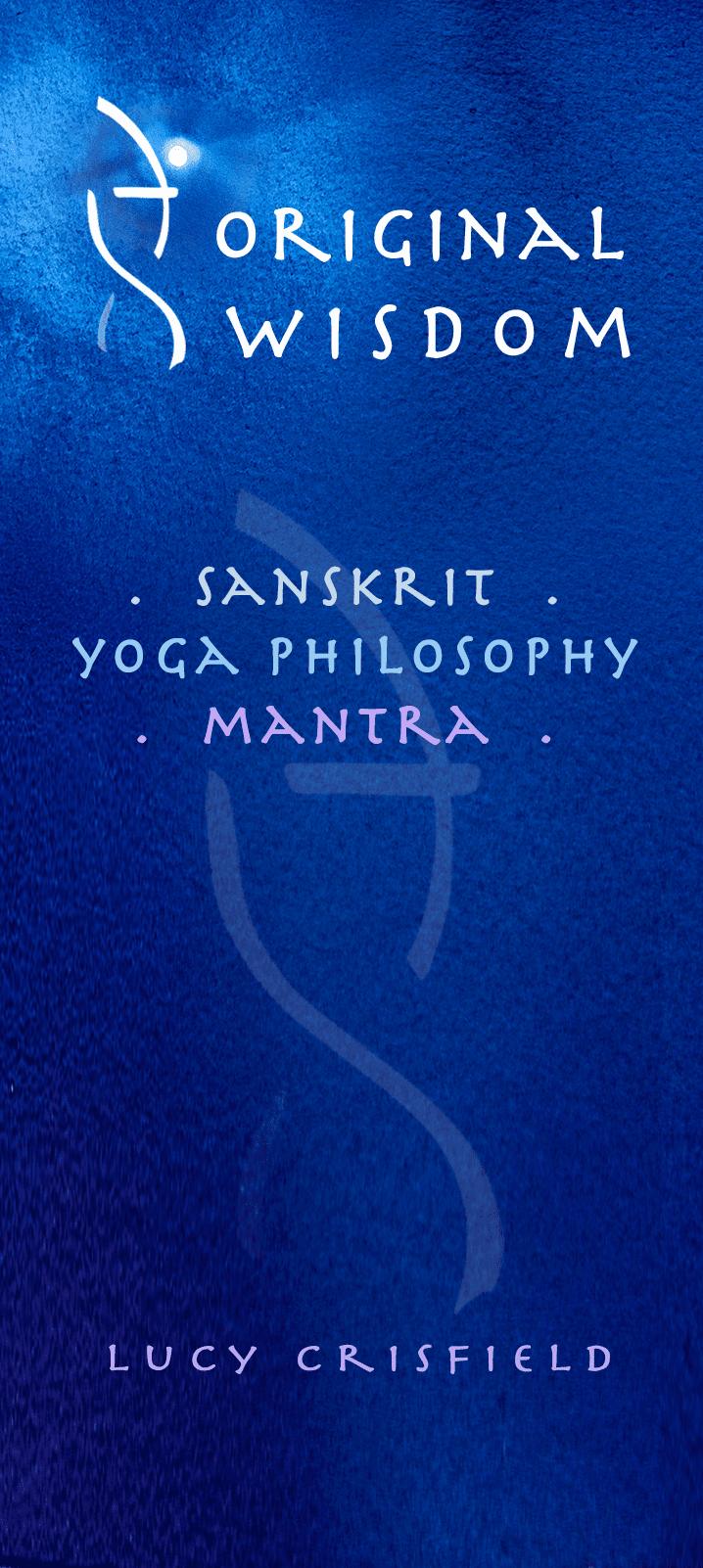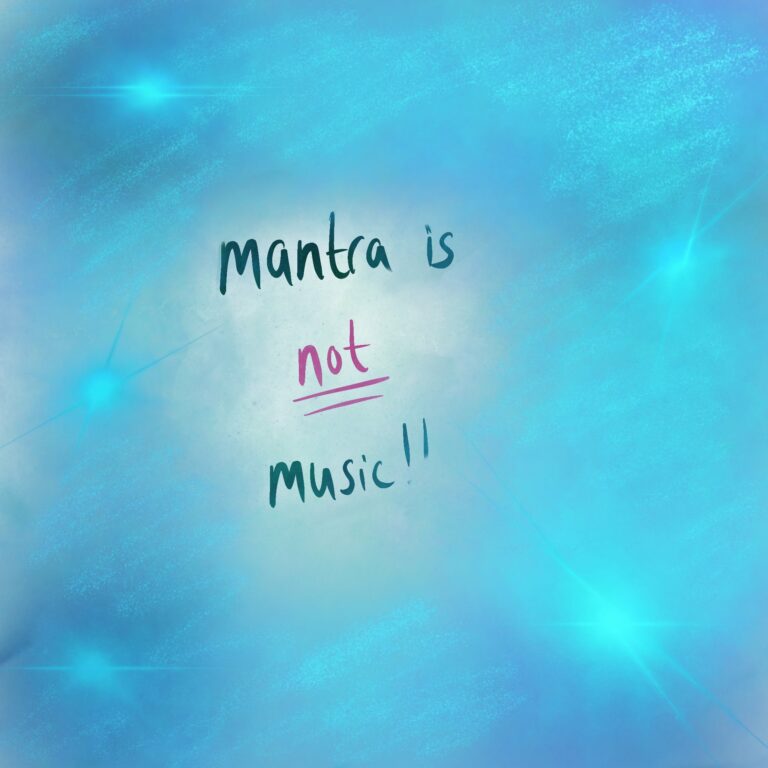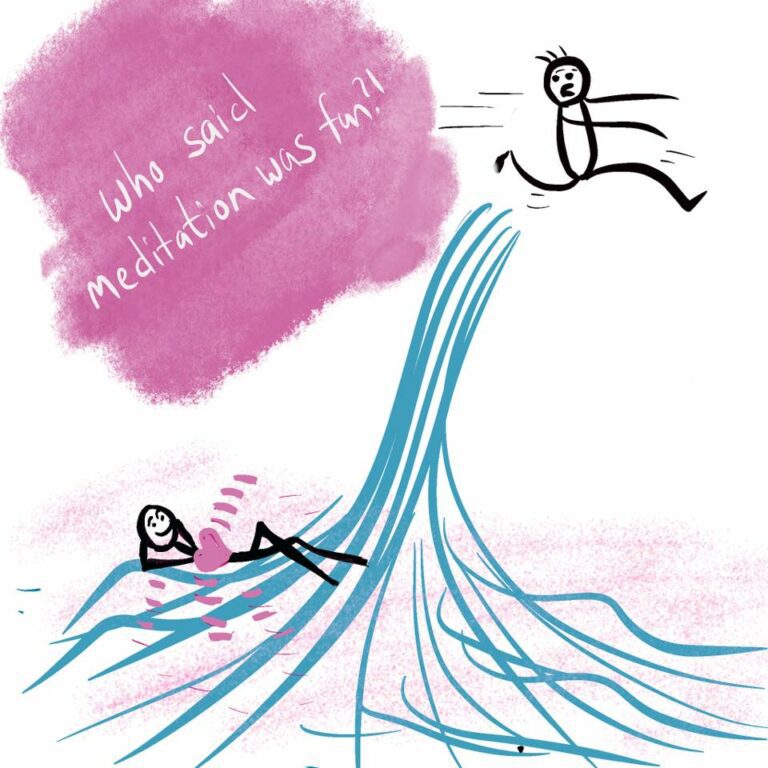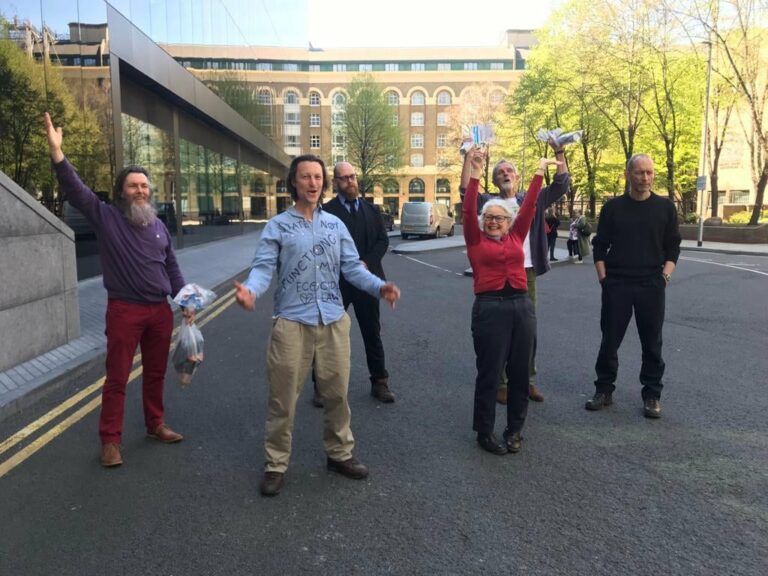Why do YTT continue to insist on making their students read translations of the yoga sūtra and the bhagavad gītā? Surely it’s time for teachers to wake up to the fact that yoga is not a western academic discipline. This means that employing western academic processes of analysis does not work.
I haven’t met a single student who was inspired or deeply touched by reading English translations of the yoga sūtra. Instead, they leave feeling bored, not clever enough, and disengaged.
The western ‘yoga philosophy’ scene needs a serious wake-up call. This is an oral tradition which teaches through the medium of sound. The entire yoga tradition is revealed through the sounds of Sanskrit, and yet the west seems to think they can access the tradition by funnelling it into the sound of their own language and staying within the realm of thought.
Some people are not interested in inquiring into the nature of reality, they just want the body stuff. In which case own it. Don’t just throw in a bit of philosophy because ‘it should be done’. If you teach philosophy on a teacher training it is your responsibility to not perpetuate the implantation of a western thinking system onto a knowledge system that works in an entirely different way. If you have only read about it in a book then don’t teach it. Are you a teacher of yoga are a teacher of yoga āsana? Let’s get the distinction clear.
The major yoga governing bodies have got the syllabus wrong. A YTT needs to start orientating our mind toward a system that is expressed through sound and that lies outside of our own, to share a feeling for the breadth and scope of the tradition, and to offer an experience of the vast resonance and capacity of the Sanskrit language.
There needs to be a massive shift in orientation if we are to look at the yoga sūtra as a confirmation of our own experience of enquiry rather than a set of concepts around how to live. This orientation begins as soon as we start feeling the effects of consciously engaging with the breath and the body and is a knowledge which is innate to us all. But YTTs then box this wisdom into modules with reading lists and essay titles.
And by doing so they are perpetuating a lineage that is calcifying a flowing vibrant teaching of liberation into the pages of time. It’s something the West is good at doing. And it’s the reason we are drawn to the East.
Of course, reading and study have its place in terms of spiritual enquiry, but only once a fundamental shift about the process of acquiring knowledge has been made. And I do not deny that powerful fulcrums of change and inspiration are occurring in YTT throughout the country; teachers are bringing forth that which they have connected to deep inside and are pouring all of their love and knowledge into something to share with others.
And there is more. And we are missing it.
So let’s open to the full magnitude of this tradition and let go into the underworld of synchronicities where things happen despite accreditations and certification. Let’s not minimise this tradition by superimposing our traditions and systems onto it. Ask questions. Don’t rely on what your teacher told you because we are now many generations down the line of a stagnant yoga philosophy system.
It is time for us to individually take responsibility. To become the living breathing expression of yoga from the inside out. And then we are one step closer to acknowledging the authority of our own experience, to stepping into the innate wisdom of our own being. We become one step closer to ourselves.
And this is the path of yoga.



